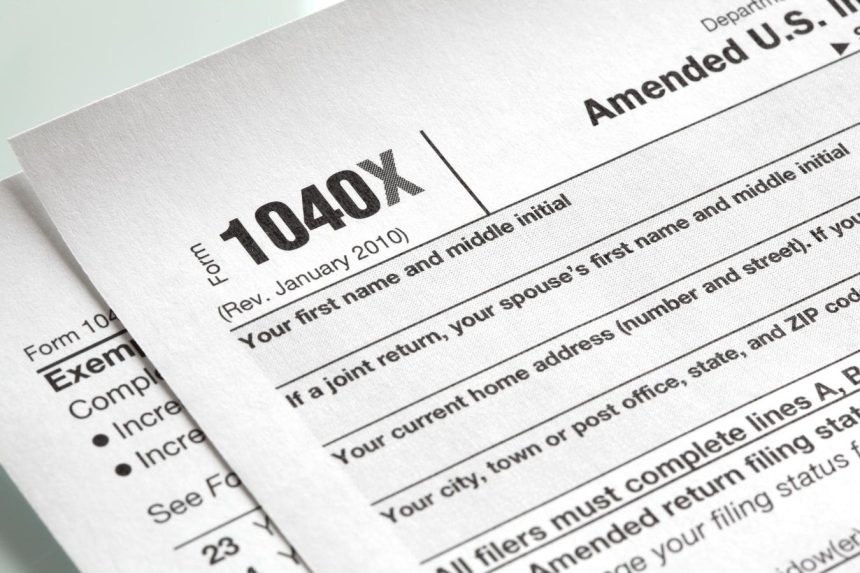The IRS frequently imposes penalties against taxpayers who file incorrect tax returns. And these accuracy-related penalties can be steep, representing 20% of the amount of the underpayment of tax attributable to the improper reporting position. Although taxpayers can potentially mitigate against the risks of accuracy-related penalties through being proactive and filing an amended return, the recent decision in Lamprecht shows that not all amended returns qualify for penalty protection under the “qualified amended return” procedures.
Accuracy-Related Penalties
Taxpayers are expected to file accurate tax returns. Accordingly, section 6662 of the Code permits the IRS to impose accuracy-related penalties for errors on a return related to: (i) negligence, or (ii) disregard of rules or regulations. In addition, section 6662 imposes an accuracy-related penalty for substantial understatements of tax.
The negligence penalty applies if a taxpayer fails to make a reasonable attempt to comply with the federal tax laws. In addition, a penalty applies for disregard of rules or regulations if a taxpayer acts careless, reckless, or intentionally in failing to comply with the federal tax laws. By comparison, the substantial understatement of tax penalty is purely computational—an individual is liable for this penalty if the amount of the understatement exceeds the greater of: (i) 10% of the tax required to be shown on the return, or (ii) $5,000.
These penalties are not absolute. For example, they do not apply if the taxpayer demonstrates reasonable cause (e.g., reasonable reliance on a tax professional for an item on a return). In addition, the penalties do not apply if the taxpayer corrects the improper reporting through a qualified amended return.
Qualified Amended Return
Taxpayers are not liable for an accuracy-related penalty under governing regulations if they file a qualified amended return. Generally, an amended return meets the requirements of a qualified amended return to the extent the original return was not fraudulent and the taxpayer timely files an amended return. In turn, an amended return is timely if it is filed prior to any of the following events:
· The date that the IRS communicates to the taxpayer that it has initiated a civil or criminal investigation of the tax return;
· If the taxpayer participated in a tax-promoter scheme, the date that the IRS communicates to the promoter that a civil or criminal investigation has been initiated;
· If the taxpayer is a member of a pass-through entity (e.g., partnership, S corporation, etc.), the date that the IRS communicates to the pass-through entity that a civil or criminal investigation has been initiated;
· The date that the IRS serves a John Doe summons relating to an activity in which the taxpayer participated in or claimed tax benefits from;
· The date the IRS announces the start of a settlement initiative regarding a listed transaction in which the taxpayer participated.
The Facts in Lamprecht
On April 23, 2024, the Circuit Court of Appeals for the D.C. Circuit issued its decision in Lamprecht v. Commissioner. In that case, the taxpayers—Swiss citizens but United States residents—had “millions in a Swiss bank called UBS” in 2006 and 2007. According to the opinion, they underreported their income from the accounts and failed to properly disclose the foreign accounts to the IRS.
In 2008, the United States served a John Doe summons on UBS, requesting information about U.S. persons who had signature and other authority over UBS foreign accounts. In 2009, UBS and the United States entered into an agreement in which UBS agreed to provide the information requested in the summons. By November 2010, the United States withdrew the John Doe summons because it had received all the information it had originally requested.
In December 2010, the Lamprechts amended their 2006 and 2007 returns to report the omitted income from the foreign UBS accounts. The Lamprechts also paid the roughly $2.5 million they owed in back taxes as a result of the amended return filings.
Although the Lamprechts had amended their returns and paid all taxes owed, the IRS issued a Notice of Deficiency in January 2015, contending that they owed approximately $500,000 in accuracy-related penalties associated with their original return filings. The Lamprechts challenged the penalties in Tax Court. When the IRS moved for summary judgment on the penalties, the Lamprechts contended that they were not liable for penalties because they had filed qualified amended returns. The Tax Court disagreed, granting the IRS’ motion for summary judgment. The Lamprechts appealed to the D.C. Circuit.
The D.C. Circuit Opinion
The D.C. Circuit agreed with the Tax Court that the amended returns were not qualified amended returns. Specifically, the court reasoned that the Lamprechts had filed amended returns only after the IRS served the John Doe summons on UBS. According to the court, the John Doe summons related to a “class of taxpayers who did exactly what the Lamprechts did – use UBS accounts to underreport their taxable income”. Because the IRS had already served a John Doe summons, the Lamprechts’ amended returns for 2006 and 2007 did not meet the requirements of a qualified amended return. In sum, they were liable for the accuracy-related penalties, even though they had tried to correct the underreporting of foreign income through amended returns.
Read the full article here
















